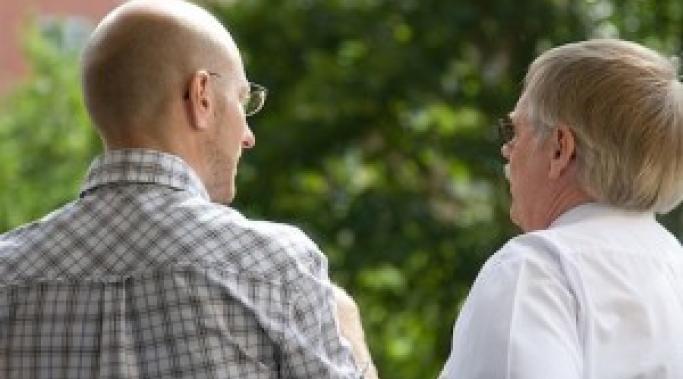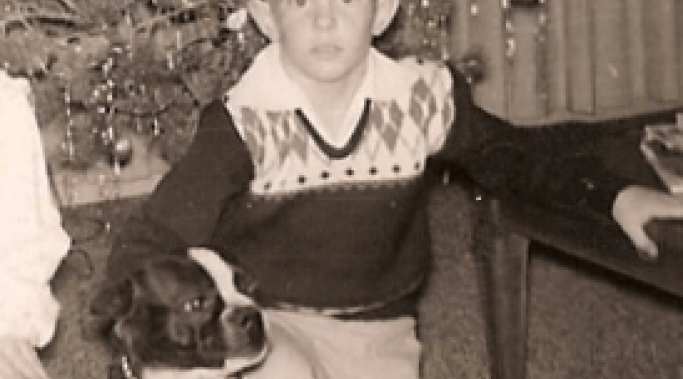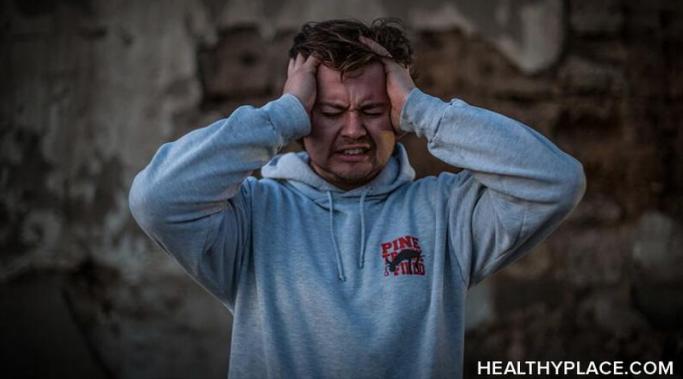An important element of posttraumatic stress disorder (PTSD) recovery is to ask for help; but that didn’t come naturally for me (Are You Afraid To Ask For Mental Health Help?). My PTSD was caused by domestic violence while I was growing up in an alcoholic household. I learned at an early age to never ask for help and I had to overcome that learned behavior in order to recover. In my PTSD recovery, I had to learn to ask for help.
PTSD Recovery Tips
Finding out that you have posttraumatic stress disorder (PTSD) can be something that is hard to deal with and accepting your PTSD diagnosis is hard, too. It may be, quite simply, a diagnosis that you don't want to hear. However, I have learned that accepting my PTSD diagnosis has made living with PTSD much easier. There is a freedom and a positive side to life after I accepted my PTSD diagnosis and even learned to embrace it.
It takes a lot of courage to confront posttraumatic stress disorder (PTSD). When my PTSD symptoms flare up, I feel weak and unable to cope, but I keep going – by moving forward to make my life better. I exhibit courage when confronting PTSD -- more than I could acknowledge for many years.
It can be frustrating learning how to cope with triggers from posttraumatic stress disorder (PTSD). Triggers seem to be all around, yet it often feels like they have come out of the blue when they hit. Because so many different things have the potential to be a PTSD trigger, it may seem like an impossible task to prepare for them before they occur (When My PTSD Gets Triggered). The good news is, there are some effective coping strategies that can help deal with triggers during PTSD recovery when they do come up.
For recovery from posttraumatic stress disorder (PTSD), it is important to have a safe place. One time a friend asked, “Dan, have you ever felt safe anywhere?” For years I walked around constantly on high alert and my posttraumatic stress disorder was on full display. Since I grew up in a household where violent domestic abuse occurred, it has been important for me to establish my own safe place in PTSD recovery where I can relax (How to Develop a Safe Place For Mental Illness Recovery).
Using mindfulness in posttraumatic stress disorder (PTSD) recovery can be a lifesaver. One of the most difficult things about having PTSD is dealing with the PTSD symptoms -- but mindfulness can help, even when triggered. There are a number of things that I know will trigger me, and I do my best to avoid those triggers. Some things sneak up on me, though, and I have to deal with the anxiety and fear that is caused by the fight or flight response my body has. One of the most effective ways I have found to get through those types of situations is by using mindfulness in my PTSD recovery.
There are many things that can trigger my posttraumatic stress disorder (PTSD). Over the years, I have learned to adapt pretty well to living with posttraumatic stress disorder. But certain situations or settings can trigger, which means to cause an onset of, the anxiety of my PTSD, taking me back to a time when I wasn’t safe and my life was in danger. I will become hypervigilant, begin to dissociate, and feel extreme anxiety. I’ve learned to watch for those situations, and to find effective coping mechanisms that reduce my anxiety when my PTSD gets triggered.
A posttraumatic stress disorder (PTSD) recovery program often requires a network of supporters for the PTSD sufferer that includes loved ones, friends, doctors and even coworkers. This is because posttraumatic stress disorder doesn't only affect those who are diagnosed with it. Usually, many people play a part in the sufferer's PTSD recovery program. Sometimes it's hard to know how to handle it when someone with PTSD is triggered, anxious, or depressed -- what to say or do to make the situations better. These are muddy waters to navigate, but it can be done. You are able to help someone through their PTSD recovery program.
I have received enormous benefit to my PTSD recovery from the use of inner child exercises. Inner child exercises help heal the wounded child who lived for so many years within my body. It was that damaged child who suffered the abuse that led to my posttraumatic stress disorder (PTSD).
When I was first presented the concept of inner child work, I thought it sounded silly. But in a time of great desperation, I tried it, with the most remarkable results. My PTSD recovery is greatly benefitted by using inner child exercises. Here's how they work.
Dealing with body memories in posttraumatic stress disorder (PTSD) recovery is one of the most difficult symptoms. Body memories differ from flashbacks. A flashback is a sudden, vivid memory that makes you feel like you are experiencing your trauma all over again. It's a physical feeling of being there, not just a normal memory where you are recalling what has happened. However, body memories are another type of way we relive trauma that, while far less intense, are still upsetting. Body memories are not so easily identified; they can cause mental problems for years before you recognize them as a body memory.








